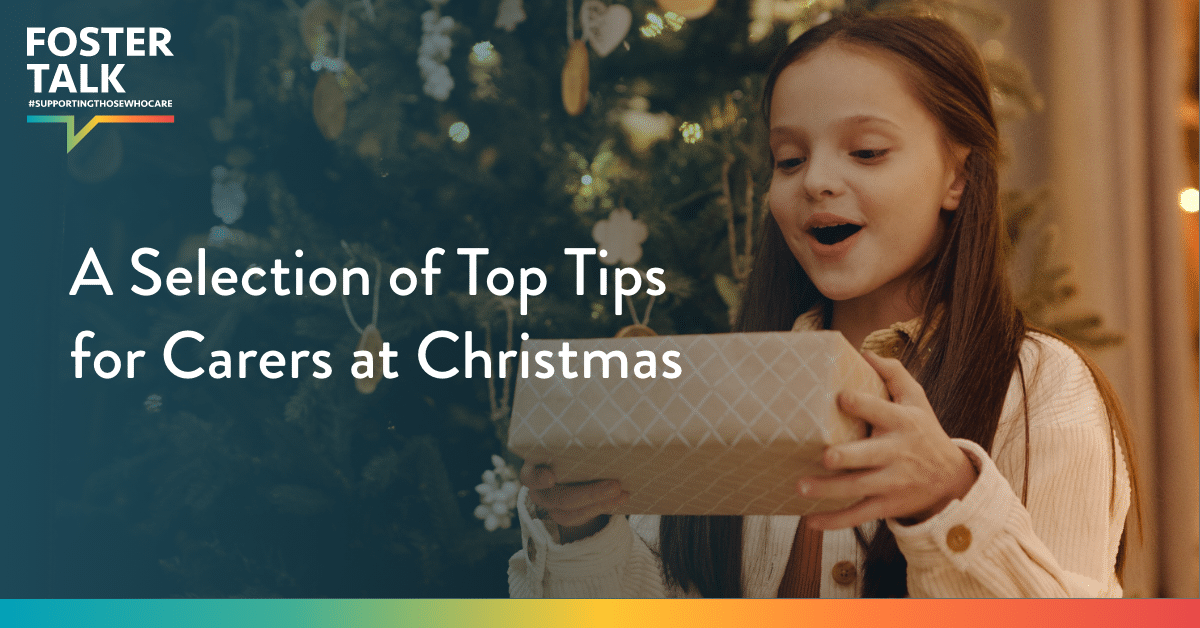Alasdair was fostered then adopted and is passionate about both, due to his lived experience. He has been a Social Worker for 27 years across fostering, adoption and front-line services in Local Authorities and independent agencies. Aside from his day job as a Head of Corporate Parenting, he presents one of the UK’s most popular Social Work YouTube channels aimed at foster parents, adopters and qualified social workers. He shares some top tips for carers across the festive period below;
GUILTY AT CHRISTMAS
Foster children feel guilty at Christmas. Guilty that they are not with their birth family and are celebrating with you. Guilt that they are happy. Guilty that they have been given great pressies (let’s face it, you push the boat out). They will feel an aching and longing to be “home,” more so at Christmas. Even if their birth family life was hellish, they will still feel guilty. So, this is the time for love, sympathy, and cuddles to subside the guilt.
STOCKING FILLERS
I knew a foster parent who created “lucky bags,” small stockings for all their children that contained silly and odd things, like cans of soup, sweeties, bars of soap, even tea bags. The kids would swap them and laugh loudly at who got what. Crucially each child was given a very special small pressie which reflected their interests which they loved. Big pressies can be overwhelming for foster children, they might have never had a “main present” just second hand pressies or sometimes nothing. If you do get foster children one big pressie each, make sure they all get one. I made the fatal mistake as a young social worker of taking a family of twelve children three bikes and it caused a Christmas war. You could probably hear the crying and shouting in Bethlehem.
BIRTH ELVES
Your own children are key to a great Christmas. They can engage with your foster children, modelling behaviours, explaining, reassuring, encouraging and in a way your foster children will understand. Prep them beforehand to ensure they are aware how tough Christmas can be.
TRADITIONS MATTER
Check out with your foster children how they celebrated Christmas. Often Christmas despite all the issues in children’s backgrounds was a special time. Try not to overwhelm new children. Tone down or ramp up the festivities depending on the needs of your child/ren. I knew of one child who said she lived in a flat so her parents had a “Santa key” which she put on the front door so he could get into the flat as they had no chimney. It’s the wee things. Sometimes it is even best to wait
until the last moment to put up Christmas decorations so not to overwhelm. If you have your own traditions embrace them, children need to see that Christmas can be a special time, not one filled with dread and tension. But be prepared to be flexible, depending on the children in your care, your Christmas may be quiet or boisterous, especially with siblings. Also, be prepared for children to not understand Christmas at all.
FRANKINCENSE AND MYRRH
You may be religious, and this will have been touched on in your assessment. But what do you do at Christmas? Christmas services are a great way to introduce children to your religion. But what are you going to do if they don’t want to go. Is it a tradition in your family? Who will stay back home if your child/ren won’t go. Maybe divert and make Christmas decorations, craft activities are often an important way for the children to make Christmas memories. Also, they can take them away with them when they leave. Some of the children I have known who were fostered use these decorations on their own tree as adults.
SILLY SEASON
Prepare for that telephone call from your Local Authority or Agency before Christmas or at Christmas. It is named the “silly season” for a reason. Keep your phone on you. More children and young people are admitted into care at Christmas than any other time of the year apart from Easter. So, plan ahead, often big sibling groups come into care at Christmas. Have the essentials ready, beds, linen, toys (wrapped just in case- remember to label them with ages) spare clothes, toothbrushes, baby food, nappies, trust me you don’t ever want to be in Tesco on Xmas Eve trying to find pyjamas for 5 children ages three to twelve, I had to once as a Social Worker. I currently work with a foster parent who has a massive present cupboard, full of toys, clothes, toiletries, which they buy throughout the year when the sales are on. It covers ages 0-18. Amazing preparation.
CONCENTRATE ON CONTACT
Establish contact arrangements way in advance, in Autumn. Openly discuss Christmas. Let’s face it the shops are full of Christmas things at the end of October so it’s never too early. Keep in contact with the social worker and your own social worker and nail the plans and logistics beforehand. Can you have a birth family Christmas before your own? Discuss, the impact on you if contact doesn’t happen, what will you do? How will it impact on your family? How will you manage the upset? What will you do if the birth family come with no presents? Never rely on the Social Work Departments to provide food and drink, take your own. Or innovate and go somewhere special rather than a dismal contact room.
Find out more about our membership today

